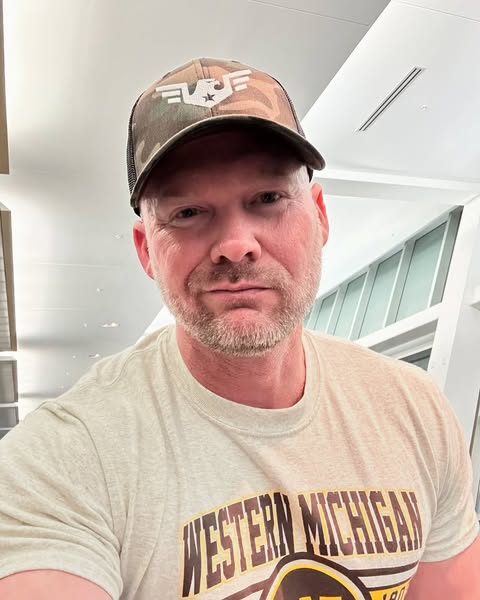The sun has just begun to lift itself over the horizon, its faint light barely brushing the tops of distant buildings, painting the sky with a tired orange hue. The streets are hushed, still caught between the silence of night and the stirrings of a new day. This is the time I find myself traveling—when most people are still cocooned in sleep, and the world is held in an almost sacred stillness. But for me, the early morning hours do not mark the beginning of a day; they signify the end of a long, relentless night shift in the Emergency Department.
Working in the ED is unlike any other profession. It’s a unique space where chaos and control coexist. There are nights when the department pulses with urgency, as trauma after trauma floods the halls. Other times, the night unfolds slowly, deceptively quiet, before exploding into sudden emergencies that pull every ounce of energy and focus. No matter how the shift begins, it always ends the same way: physically drained, mentally frayed, and emotionally worn.
Stepping out of the fluorescent-lit chaos into the subdued morning light always feels surreal. The transition is jarring—from adrenaline-charged resuscitations and rapid decisions to the quiet stillness of a near-empty parking lot. There’s a palpable contrast between the world I’ve just left behind and the one I’m stepping back into. It’s in this transitional moment—walking out of the ED and into the early morning air—that the exhaustion really sets in.
The body begins to crash as the mind lets go. Muscles ache from hours of standing, hands tremble slightly from the cumulative stress, and the buzzing in my ears from constant alarms still lingers like an unwelcome echo. The hospital badge still hangs around my neck, and my scrubs, now wrinkled and marked with the night’s work, carry the invisible weight of patients seen, decisions made, and sometimes, lives lost.
The drive home is its own strange ritual. I’ve learned over time to keep the car cool, windows slightly cracked, music soft but steady—anything to keep me alert enough to make it home safely. The city, once frenzied and alive during the day, seems oddly gentle in the early hours. Traffic lights blink on empty intersections, buses begin their morning routes, and joggers, full of energy I can’t fathom, begin to appear on sidewalks. They pass me with nods or blank stares, unaware of the night I’ve just emerged from.
There’s a unique solitude to this commute. Unlike daytime travel, when the roads are clogged with commuters, honking horns, and the hum of collective purpose, this early morning drive offers reflection. I replay moments from the shift in my mind: the patient who coded and came back, the elderly woman who held my hand and thanked me despite her pain, the teenage boy with a stab wound who barely made it through the night. Each memory floats up like fog, unbidden and unfiltered.
There’s no off-switch for these recollections. Sometimes they haunt me quietly; other times, they arrive with force, bringing with them guilt, grief, or frustration. The decisions made in seconds weigh heavily in the minutes that follow. Did I do everything I could? Did I miss something? Was I kind enough to the scared mother? Did I speak clearly to the team when it mattered most? These thoughts don’t wait for sleep—they meet me as I drive through the half-lit city, lingering long after I’ve pulled into my driveway.
Despite the fatigue and mental overload, there’s also a strange serenity in this morning journey. There’s something deeply human about watching the city awaken just as I prepare to rest. The world carries on. Coffee shops flicker to life, bakery doors open, children wait with parents for the school bus. Life resumes its rhythm. And though I’m stepping out of sync, there’s comfort in knowing that my role in this cycle, though often hidden and misunderstood, matters. While others slept, we in the ED stood guard. We were there for the cries in the night, for the broken and the bleeding, for those who didn’t know where else to go.
My car pulls into the driveway just as the sun rises fully. The neighborhood is waking up. I see familiar faces—neighbors heading out for their morning routines—and I give a polite wave, though they rarely know I’ve just finished an all-night shift. There’s an unspoken divide between those who live by the sun and those who live by the demands of the hospital. I unlock the door, enter the quiet sanctuary of my home, and am greeted by silence, maybe the faint buzz of the fridge or the rustle of the cat jumping down from a perch. It’s a welcome quiet, one that asks nothing of me.
I remove my shoes with care, as though they might crumble under the weight of the shift. My scrubs go straight into the laundry. It’s a ritual, almost like shedding a second skin. I wash my hands for what feels like the hundredth time, though this time it’s less about infection control and more about cleansing the remnants of the night. The warm water is soothing, grounding.
Sometimes, despite the exhaustion, I find myself pausing—standing by the window, sipping water or tea, watching the light creep across the floor. I think about what I saw during the night. Not just the clinical details, but the humanity of it all. The moments that don’t make it into charts: a hand squeezed for reassurance, a laugh shared in the middle of a lull, the quiet courage of patients facing the unknown.
There’s often no one to share these moments with immediately. Loved ones are either asleep or preparing for their day. And that, too, is part of the unique isolation of working night shifts in the ED—living on a schedule that doesn’t quite align with the rest of the world. Friends might text during the day, not realizing I’m asleep. Family might not fully grasp the emotional rollercoaster that comes with the job. Over time, you learn to live with a certain emotional solitude.
Eventually, I make my way to bed. The curtains are drawn tightly to shut out the sun. I use a sleep mask and earplugs to give myself the illusion of night. And yet, falling asleep isn’t always easy. The mind takes time to unwind. Sometimes I listen to calming sounds or podcasts, trying to coax myself into rest. Other times, I lay awake for longer than I’d like, staring at the ceiling, thoughts from the shift looping endlessly.
But sleep eventually comes. And when it does, it’s deep and dreamless—more like a shutdown than a rest. Hours pass in a blink. When I wake, the day has moved on without me. The sun is already descending. It’s an odd way to live, but it’s the rhythm I’ve grown used to. A rhythm dictated not by clocks, but by call lights and code blues, by the steady hum of machines and the ever-urgent demands of patient care.
Early morning travels after a long ED shift are more than just a commute. They are a bridge between two worlds: the clinical and the personal, the frantic and the still. They are a time for reflection, decompression, and solitude. They offer a rare, quiet grace—a moment to breathe before the next shift begins. And in that moment, despite everything, there is a kind of peace. Not in the absence of chaos, but in the knowledge that you’ve done what you could, that you’ve shown up, and that, for at least one night, you’ve made a difference.



